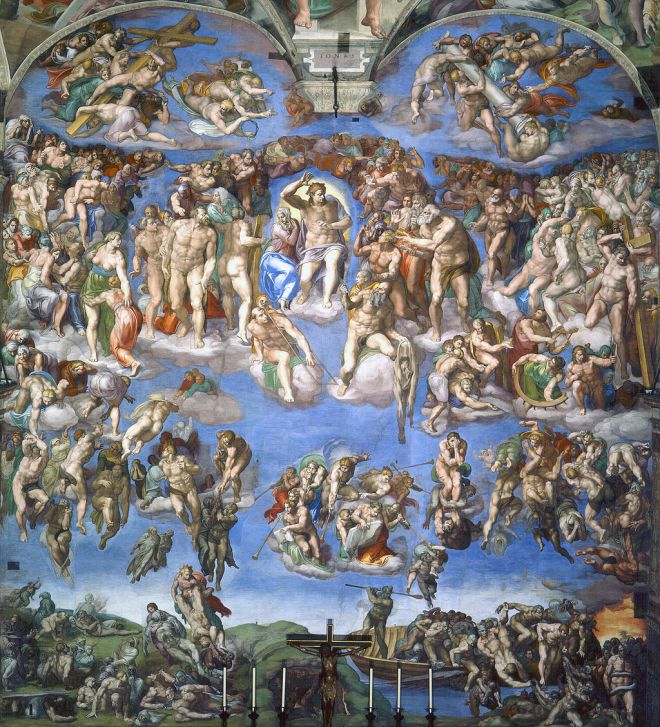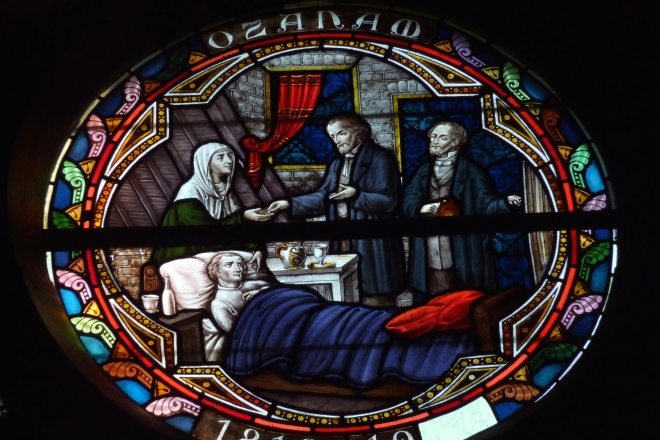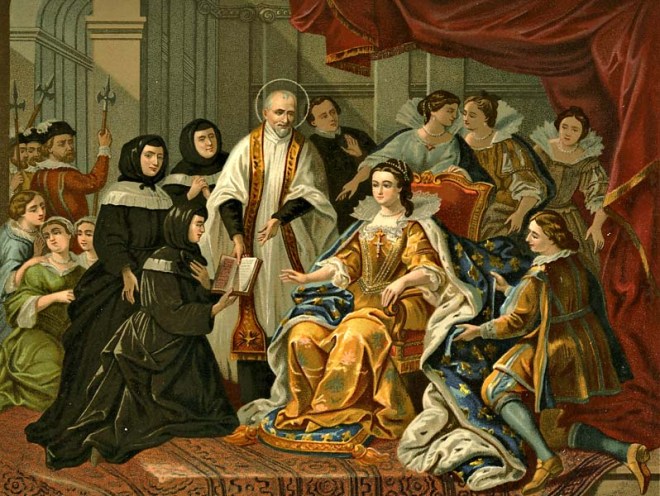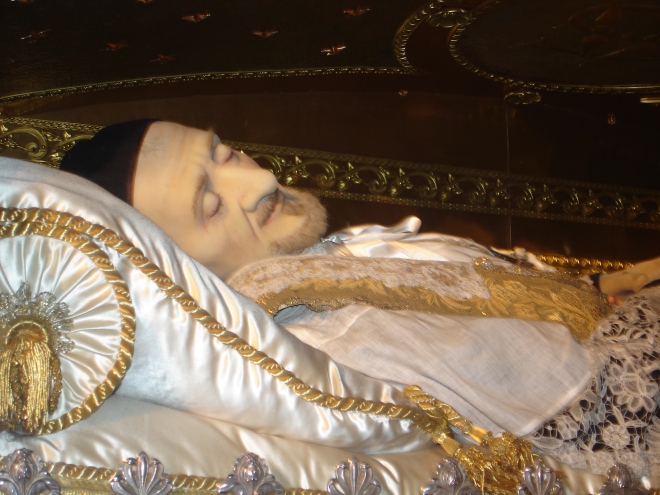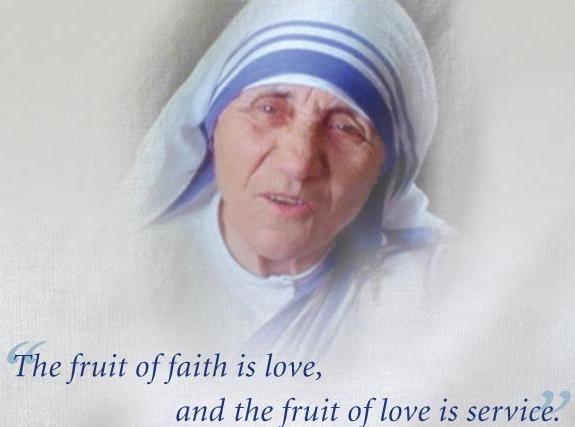Brothers and Sisters,
As I was talking with a co-worker earlier this week, the charism of service, was flashing like a neon sign in my mind as we talked. He and I had volunteered at a women’s shelter doing some general clean-up and landscaping work. I had not talked to him in several months since that time. I had done maybe one other volunteer service activity since then. He on the other hand had been back to the shelter and gave me a run-down of the developments there, he also mentioned at least three other projects that he had done. He was organizing other employees to staff service opportunities. He is on the board of directors of at least two charities. He was so enthusiastic as he talked about how much he enjoyed this work, it is quite evident to me that he has the charism. With this prompting I have a further reflection on the charism of service.
It is important to recognize the link between service and holiness. Historian of Christian spirituality, Henri Bremond said of St. Vincent de Paul, “It was not love for men that led Vincent to sanctity; rather it was sanctity that made him truly and effectively charitable; it was not the poor that gave him to God, but on the contrary, God who gave him to the poor.” (Source: SVDP Manual – online at http://www.svdpmadison.org/wp-content/uploads/2015/08/Manual-2007-final-draft-revisionb.doc) This quote brings to mind the interplay between serving the poor and holiness. Serving the poor advances our holiness and our holiness advances our service to the poor. Growth in Christian maturity manifests itself in our prayer life, our Christian service, our growth in virtue, effective evangelization, and the fruit of our work for God. We can’t do this without God and God won’t do this without us.

St. Vincent de Paul tells us: “It is our vocation…to set people’s hearts ablaze, to do what the Son of God did, who came to light a fire on the earth in order to set it aflame with his love. It is not enough for me to love God if my neighbor does not love him. I must love my neighbor as the image of God and the object of his love…I must act in such a way that people love their Creator and each other in mutual charity for love of God who loved them so much that he delivered up his own son to death for them.” (Source: SVDP Manual)
I would like to suggest that, as with other charisms, even if service is not our primary charism, we can all grow in the gift. We have to start where we are and challenge ourselves to move toward a greater level of service. If we have our eyes open, we may find opportunities that present themselves to us without having to search to find them.
Some time back, I was presented with such an opportunity. A relative that we visited had been struggling with a series of illnesses that had really worn her down almost to the point of despair. When we arrived at the apartment it was in such a state that it was barely livable. I immediately recognized the opportunity for service and pushed aside her protests that we should not worry about it. We spend two or three hours cleaning up the place and talking with her about her situation and expressing our concern for her. Before we left we prayed with her and encouraged her to allow God into her life. We had not planned to stay very long and so we were late to some other activities that we had planned. Our small sacrifice yielded some fruit, which was evident from follow-up communications with our relative. In that case it seemed like the most important result of our service was that it was a concrete reminder to her that someone cared enough to give her some tangible help.
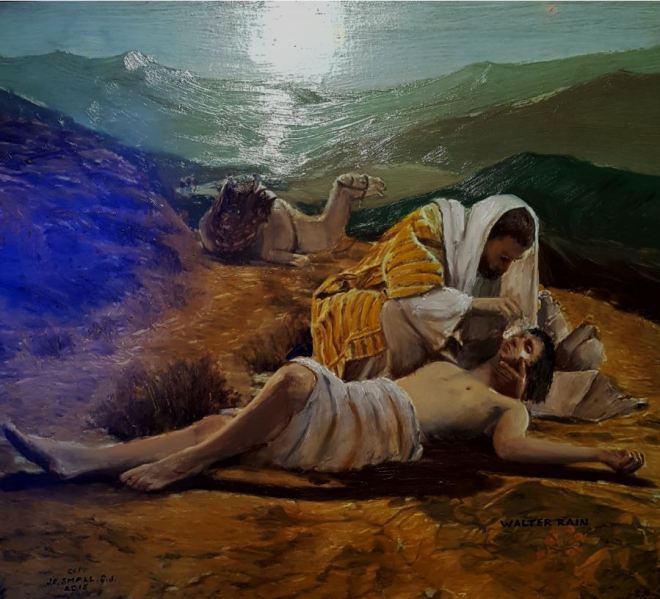
In the parable of the Good Samaritan Jesus gives us an example of an opportunity for service. The priest and the Levite pass up the opportunity for service because they have more “important” things to do. In describing the actions of the Samaritan, Jesus lays out the expectation for those who would inherit eternal life. The Samaritan went over and above what was expected, particularly since there was no duty whatsoever from a worldly perspective that would drive him to do that. In my example, helping a relative could be expected, but helping those who we know don’t like us, as in the case of the Samaritan, is the standard that Jesus sets out for us.
The next level beyond just serving as things come up, involves a commitment to serve on a regular basis. Just like meeting together with other Christians regularly helps us to grow in our faith, signing up to serve the poor and needy in a regular capacity will help us to grow more than random acts of service.
I will close with a quote from Pope Francis:
“But Jesus tells us that the path to encountering Him is to find His wounds. We find Jesus’ wounds in carrying out works of mercy, giving to our body – the body – the soul too, but – I stress – the body of your wounded brother, because he is hungry, because he is thirsty, because he is naked because it is humiliated, because he is a slave, because he’s in jail because he is in the hospital. Those are the wounds of Jesus today. And Jesus asks us to take a leap of faith, towards Him, but through these His wounds. ‘Oh, great! Let’s set up a foundation to help everyone and do so many good things to help ‘. That’s important, but if we remain on this level, we will only be philanthropic. We need to touch the wounds of Jesus, we must caress the wounds of Jesus, we need to bind the wounds of Jesus with tenderness, we have to kiss the wounds of Jesus, and this literally. Just think of what happened to St. Francis, when he embraced the leper? The same thing that happened to Thomas: his life changed.” (7/3/13) (Source: http://www.usccb.org/beliefs-and-teachings/what-we-believe/catholic-social-teaching/upload/pope-francis-quotes1.pdf page 129)
Peace of Jesus,
Dave

